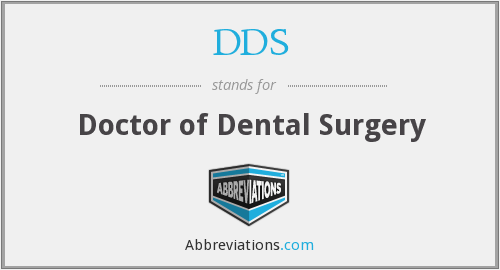Are Dental Deep Cleanings Necessary

Dental deep cleanings, also known as scaling and root planing, are a common dental procedure designed to treat gum disease, particularly in its early stages. The procedure involves removing plaque, tartar, and bacteria from both above and below the gum line, as well as smoothing out the root surfaces of teeth to prevent future buildup. But are dental deep cleanings really necessary, or are they just another unnecessary expense in the world of dental care?
To answer this question, let’s first explore the importance of gum health and the consequences of neglecting it. Gum disease, or periodontal disease, is a chronic infection of the gums and bone that support the teeth. If left untreated, it can lead to serious problems, including tooth loss, increased risk of heart disease and diabetes, and even issues with pregnancy and low birth weight. In fact, according to the Centers for Disease Control and Prevention (CDC), nearly half of all adults in the United States have some form of gum disease.
One of the primary reasons dental deep cleanings are necessary is that they help prevent the progression of gum disease. By removing plaque and tartar, dentists can reduce inflammation and prevent the infection from spreading. This is especially important for individuals who are at high risk for gum disease, such as smokers, diabetics, and those with a family history of the condition.
Another key benefit of dental deep cleanings is that they can help alleviate symptoms associated with gum disease, such as bad breath, bleeding gums, and sensitivity. By removing bacteria and debris from the mouth, dentists can help reduce the risk of these symptoms and improve overall oral health.
But how do dental deep cleanings work, exactly? The procedure typically involves several steps:
- Scaling: The dentist uses a special tool to remove plaque and tartar from the teeth, both above and below the gum line.
- Root planing: The dentist smooths out the root surfaces of the teeth to prevent future buildup.
- Antibiotic treatment: In some cases, the dentist may prescribe antibiotics to help combat infection.
While dental deep cleanings can be an effective way to treat gum disease, they are not without controversy. Some critics argue that the procedure is overly aggressive and can cause unnecessary damage to the gums and teeth. Others argue that the benefits of deep cleanings are not supported by scientific evidence.
So, what does the evidence say? A 2015 systematic review published in the Journal of Periodontology found that scaling and root planing was effective in reducing pocket depth and improving clinical attachment levels in patients with chronic periodontitis. Another study published in 2020 in the Journal of Dental Research found that deep cleanings were effective in reducing inflammation and improving gum health in patients with gum disease.
In terms of cost, dental deep cleanings can vary widely depending on the location, dentist, and severity of the procedure. On average, a deep cleaning can cost anywhere from 200 to 1,000 or more per session, although many insurance plans cover at least part of the cost.
Despite the potential benefits and cost-effectiveness of dental deep cleanings, there are some potential risks and side effects to consider. These can include:
- Discomfort: Deep cleanings can be uncomfortable, especially if the dentist needs to use local anesthesia.
- Bleeding: The procedure can cause bleeding, especially if the gums are already inflamed.
- Sensitivity: Some patients may experience sensitivity after a deep cleaning, especially if the dentist uses a rough scaling tool.
To minimize these risks, it’s essential to choose a qualified and experienced dentist who uses gentle and effective techniques. It’s also important to follow proper oral hygiene practices, including brushing and flossing regularly, to prevent the need for deep cleanings in the first place.
In conclusion, dental deep cleanings are a necessary and effective way to treat gum disease and prevent its progression. While they may not be suitable for everyone, the benefits of deep cleanings far outweigh the potential risks and costs. By understanding the importance of gum health and the role of deep cleanings in maintaining it, individuals can take proactive steps to protect their oral health and overall well-being.
Frequently Asked Questions
What is the difference between a regular cleaning and a deep cleaning?
+A regular cleaning, also known as a prophylaxis, is a routine procedure that removes plaque and tartar from the teeth above the gum line. A deep cleaning, on the other hand, is a more invasive procedure that removes plaque and tartar from both above and below the gum line, as well as smooths out the root surfaces of the teeth.
How often do I need to get a deep cleaning?
+The frequency of deep cleanings depends on the individual's oral health and risk factors for gum disease. Some people may need a deep cleaning every 6 months, while others may only need it once a year. Your dentist can help determine the best schedule for your needs.
Can I prevent the need for deep cleanings by practicing good oral hygiene?
+Yes, practicing good oral hygiene, including brushing and flossing regularly, can help prevent the need for deep cleanings. However, even with good oral hygiene, some people may still be at risk for gum disease due to factors such as genetics, smoking, or certain medical conditions.
Are deep cleanings painful?
+Deep cleanings can be uncomfortable, especially if the dentist needs to use local anesthesia. However, most dentists use gentle and effective techniques to minimize discomfort and make the procedure as painless as possible.
Can I get a deep cleaning if I have dental implants or veneers?
+Yes, deep cleanings can be performed on patients with dental implants or veneers. However, the procedure may need to be modified to accommodate these restorations. Your dentist can help determine the best approach for your individual needs.
In the end, dental deep cleanings are a valuable tool in the fight against gum disease and the maintenance of good oral health. By understanding the benefits and risks of deep cleanings, individuals can make informed decisions about their dental care and take proactive steps to protect their teeth and gums.

